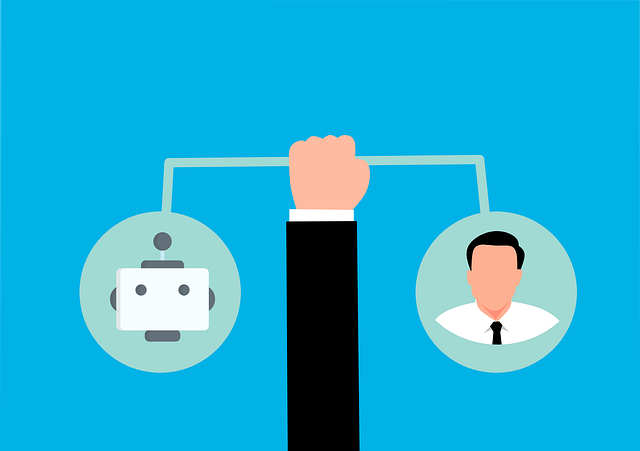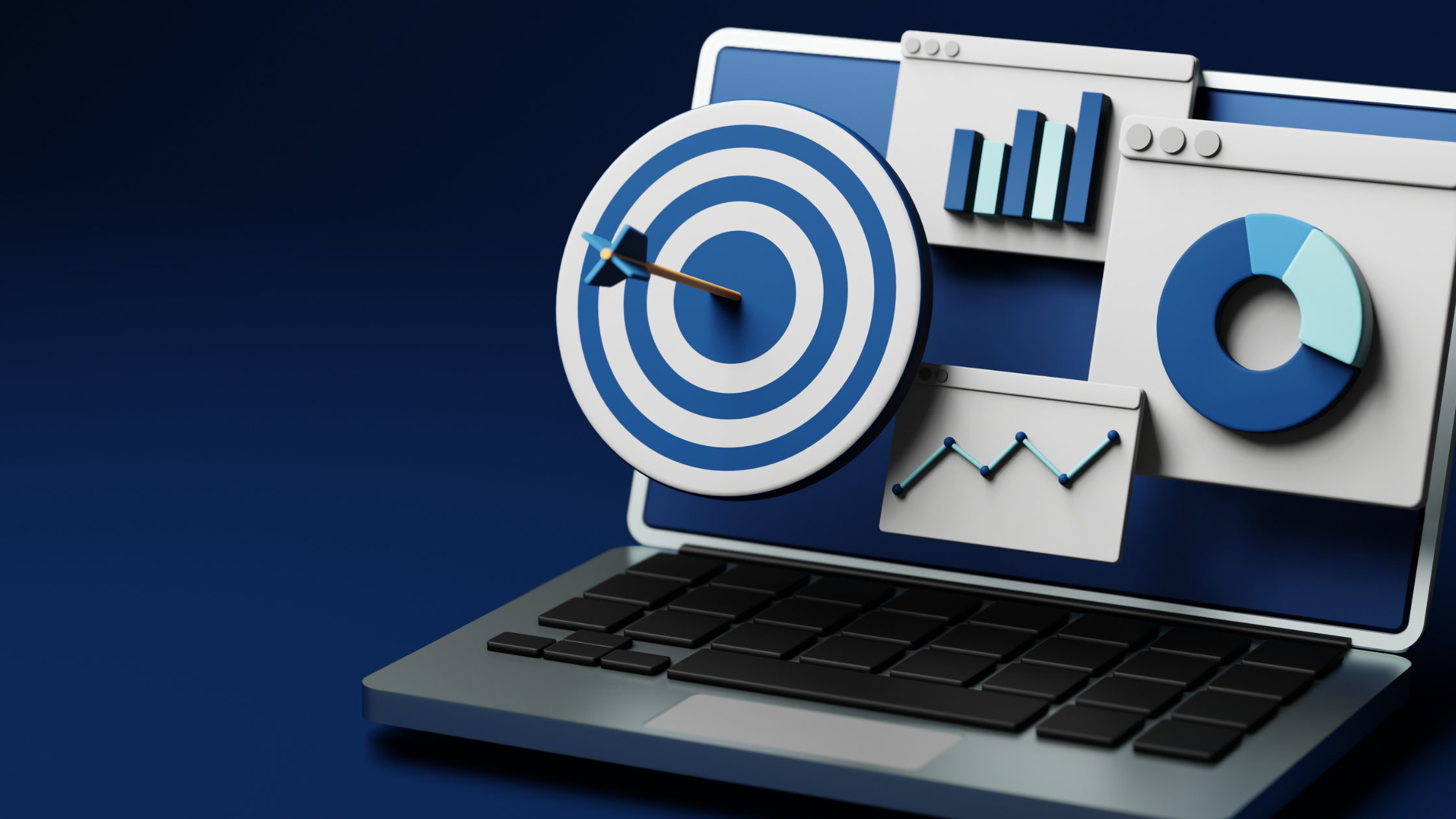What Is Marketing Automation and How Does It Help Marketers?
Are you a marketer or sales manager looking to stay ahead of the growing competition in today’s digital world? Or a business owner striving to maintain your success and customer retention? If so, then it's time for you to explore all that marketing automation has to offer. As digital marketing strategies and platforms continue to evolve and expand rapidly, so does the complexity of managing them. Fortunately, modern technology makes this simpler with the help of marketing automation software.
In this blog post, we will discuss what marketing automation is, how it can help marketers increase efficiency, save time, and boost results from their campaigns. So let's dive into this new exciting technology!
Introduction to marketing automation

What is marketing automation?
Marketing automation is like having a super-powered robot sidekick to help you with your marketing tasks! With marketing automation, you can automate tedious and time-consuming tasks like sending emails, posting on social media, and tracking customer behaviour. This frees up your time and energy to focus on the fun stuff, like coming up with killer marketing strategies and engaging with your customers. Plus, with marketing automation, you can deliver personalised and targeted messages to your customers, making them feel all warm and fuzzy inside. So go ahead, give marketing automation a try and watch your business soar!
Why is it important for businesses?
Marketing automation is important for your businesses because it helps you save time, improve efficiency, and better engage with your customers. Instead of manually managing marketing tasks and processes, marketing automation allows you to automate and streamline these tasks, freeing up your time and energy to focus on high-value activities. With marketing automation, you can also deliver personalised and targeted messages to your customers, making them feel valued and appreciated. Plus, marketing automation can help track and analyse the performance of your marketing efforts, so you can see what's working and what's not.
The potential threat if you do not use marketing automation, is that your business may fall behind your competitors who are using marketing automation. Without marketing automation, you will struggle to keep up with the increasing demands and expectations of customers, who are becoming more savvy and demanding. Plus, you may miss out on valuable insights and opportunities that can be gained through marketing automation. Without access to data and analytics, your business won't be able to make informed decisions about its marketing strategy and tactics. In short, not using marketing automation can be like trying to play a game of basketball without a ball - it's just not going to work out very well!
In short, marketing automation is like a trusty sidekick that helps you get more done, in less time, and with a smile on their face!
How marketing automation software works

As a marketer, you know that marketing automation software can be a game-changer for your business. But how does it actually work? Think of it like a basketball game. Just like a basketball team needs a coach to plan and execute strategies, your business needs marketing automation software to plan and execute your marketing campaigns.
Just like a basketball team needs players to execute the plays on the court, your business needs marketing automation software to automate and execute marketing tasks and processes. And just like a basketball team needs a scoreboard to track the score, your business needs marketing automation software to track and analyse the performance of your marketing efforts.
With marketing automation software, you can automate and streamline your marketing tasks, so you can focus on the fun stuff, like coming up with creative marketing ideas and engaging with your customers. Plus, you can deliver personalised and targeted messages to your customers, making them feel like VIPs. So go ahead, give marketing automation software a try and watch your business score some major points!
Key components of marketing automation software

Marketing automation software is like a well-oiled machine, with different components working together to make your marketing efforts run smoothly. As a basketball team needs different players to execute different plays on the court, marketing automation software has different components that help you automate and execute different marketing tasks and processes.
For example, email marketing automation is like your team's star shooter - it helps you send personalised and targeted emails to your prospects and customers. Social media marketing automation is like your team's agile point guard - it helps you schedule and publish social media posts, as well as engage with your followers in a personalised way.
And lead generation and management is like your team's powerhouse centre - it helps you identify and nurture leads, and track their progress through the sales funnel. In short, marketing automation software is like a full squad of all-star players, working together to help your business win the marketing game!
For example, with HubSpot's Workflow tool, you can create a workflow that automatically sends a personalised email to new leads who have completed a specific form on your website.
The workflow will trigger when a new lead is added to your database, and it will send the email to the lead using pre-defined templates and variables. This helps you automate the process of engaging with new leads, and it allows you to deliver personalised and timely messages that can help move the lead through the sales funnel.
Benefits of marketing automation
Marketing automation is like having a secret weapon in your arsenal, to streamline your marketing tasks and processes, so you can focus on high-value activities and score major points with your customers. Just like a basketball team needs different players to execute different plays on the court, marketing automation has different benefits that help you automate and execute different marketing tasks and processes.
For example;
-
Improved efficiency and productivity: to automate and streamline tedious and time-consuming tasks, freeing up your time and energy to focus on high-value activities.
-
Increased customer engagement and satisfaction: to deliver personalised and targeted messages to your customers, which can improve engagement and satisfaction.
-
Better tracking and analysis of marketing campaigns: access to data and analytics, which can help them track and measure the performance of your marketing efforts.
-
Enhanced personalization and targeting: to tailor your marketing messages and content to individual customers, based on their interests and preferences.
-
Improved lead generation and management: identify and nurture leads, and track their progress through the sales funnel.
-
Greater flexibility and scalability: to quickly and easily adjust your marketing strategies and tactics based on changing customer needs and market conditions.
-
Better collaboration and coordination: a centralised platform for you to collaborate and coordinate your efforts across different teams and channels.
Examples of marketing automation software

-
Email marketing automation - sending personalised and targeted emails to prospects and customers based on their behaviour and preferences.
-
Social media marketing automation - scheduling and publishing social media posts, as well as engaging with customers and followers in a personalised way.
-
Lead generation and management - using marketing automation tools to identify and nurture leads, and track their progress through the sales funnel.
-
Customer segmentation - using marketing automation to group customers into different segments based on their characteristics and behaviour, in order to target them with personalised marketing messages.
-
Marketing campaign management - using marketing automation to plan, execute, and track the performance of marketing campaigns across multiple channels.
-
Cross-selling and upselling - using marketing automation to identify opportunities to upsell and cross-sell products or services to existing customers.
-
Customer behaviour tracking - using marketing automation to monitor and analyse customer behaviour, such as website visits, clicks, and purchases, in order to gain insights and improve marketing efforts.
-
Lead scoring - using marketing automation to assign a score to each lead based on their likelihood to convert, in order to prioritise and focus efforts on the most promising leads.
-
Personalization - using marketing automation to tailor marketing messages and content to individual customers, based on their interests and preferences.
-
Automated A/B testing - using marketing automation to automatically conduct and analyse A/B tests to determine the best performing marketing tactics.
-
Abandoned cart recovery - using marketing automation to send targeted emails to customers who have abandoned their shopping carts, in order to encourage them to complete their purchase.
-
Customer journey mapping - using marketing automation to create visual representations of the customer journey, in order to identify opportunities for improvement and optimization.
-
Lead nurturing - using marketing automation to send targeted content and messages to leads over time, in order to build relationships and move them closer to a purchase decision.
-
Multi-channel marketing - using marketing automation to coordinate and manage marketing efforts across multiple channels, such as email, social media, and paid advertising.
-
Behavioural targeting - using marketing automation to target customers with marketing messages based on their past behaviour, such as pages visited or products viewed on a website.
-
Analytics and reporting - using marketing automation to track and analyse key performance metrics, such as website traffic, leads generated, and conversion rates, in order to measure the success of marketing efforts.
-
Landing page optimization - using marketing automation to create and test different versions of landing pages in order to improve conversion rates and generate more leads.
-
Event marketing - using marketing automation to plan, promote, and manage events, such as webinars or conferences, in order to generate leads and engage with customers.
-
Customer service automation - using marketing automation to provide personalised and timely responses to customer inquiries and requests, in order to improve customer satisfaction and retention.
-
Sales enablement - using marketing automation to provide sales teams with the information and resources they need to effectively engage with leads and close deals.
Best practices for implementing marketing automation

But before you jump in and start using marketing automation software, it's important to follow some best practices to ensure that you get the most out of your investment.
Identify your specific goals and objectives
First, it's crucial to identify your specific goals and objectives for using marketing automation software. What do you want to achieve with your marketing efforts? Do you want to generate more leads, improve customer engagement, or increase sales and revenue? By setting clear goals and objectives, you can ensure that your marketing automation efforts are focused and effective.
Integrate your marketing automation
It's important to integrate your marketing automation software with other systems and tools that you use in your business. For example, if you use a customer relationship management (CRM) system, you can integrate your marketing automation software with the CRM to ensure that all of your customer data is kept in one place. This will help you create a more seamless and effective marketing experience for your customers.
Training and support staff
The purpose of implementing marketing automation software is to provide staff training and support. Your team members will need to learn how to use the software and understand its capabilities and limitations. You may also need to provide ongoing support and guidance to help them get the most out of the software. This can include the provision of training sessions, user guides, and support resources, such as online tutorials and FAQs.
Monitoring campaigns

It's important to monitor and adjust your marketing automation campaigns on an ongoing basis. This will help you to ensure that your campaigns are running smoothly and you can achieve your desired outcomes. You can use the data and analytics provided by your marketing automation software to track the performance of your campaigns, and adjust your tactics and strategies as needed.
There are many different marketing automation software options available, including HubSpot, Marketo, and Pardot. Each of these tools has its own unique features and capabilities, so it's important to research and compare them to find the best fit for your business. You can also consider using a marketing automation platform that offers a range of tools and features, such as email marketing, social media marketing, and lead generation and management.
By following best practices, such as setting clear goals and objectives, integrating with other systems, providing staff training and support, and monitoring and adjusting your campaigns, you can maximise the benefits of marketing automation for your business.
Additional Questions

We asked our team of marketing automation experts to make a list of other common questions our clients have asked over the years.
Are there any risks or challenges with using marketing automation?
One potential risk with marketing automation is that it can lead to a lack of personalization and human touch in marketing messages. This can result in a lack of customer engagement and satisfaction. Another challenge is that marketing automation requires a significant investment in technology and software, as well as staff training and support.
How do I choose the right marketing automation software for my business?
There are many different marketing automation software options available, and it's important to research and compare them to find the best fit for your business. Consider your specific goals and objectives, as well as your budget and resources. You can also consider using a marketing automation platform that offers a range of tools and features, such as email marketing, social media marketing, and lead generation and management.
How do I implement marketing automation successfully in my business?
To successfully implement marketing automation in your business, it's important to follow best practices, such as setting clear goals and objectives, integrating with other systems, providing staff training and support, and monitoring and adjusting your campaigns. It's also important to regularly review and evaluate your marketing automation efforts to ensure that they are achieving your desired outcomes. When needed, get help from an experienced marketing automation consultant.
Can marketing automation replace human marketers?

Marketing automation is not designed to replace human marketers but rather is meant to enhance their capabilities and effectiveness. While marketing automation software can automate and streamline certain tasks, it still requires human creativity, insight, and judgement to develop and execute effective marketing strategies and campaigns.
How do I measure the success of my marketing automation efforts?
To measure the success of your marketing automation efforts, you can use the data and analytics provided by your marketing automation software. This can include metrics such as website traffic, leads generated, conversion rates, and customer engagement. You can also use customer feedback and surveys to gauge the effectiveness of your marketing efforts.
Can marketing automation be used for all types of businesses and industries?
Marketing automation can be used by businesses of all types and sizes across a wide range of industries. However, the specific tools and techniques used may vary depending on the nature of the business and its target audience. For example, a B2B company may focus on lead generation and management, while a B2C company may focus on social media marketing and customer behaviour tracking.
Can marketing automation be used for both online and offline marketing efforts?
Marketing automation can be used for both online and offline marketing efforts, depending on the specific tools and techniques used. For example, email marketing automation can be used for both online and offline campaigns, while social media marketing automation is primarily used for online campaigns. Offline marketing efforts, such as events and direct mail, can also be managed and coordinated using marketing automation software.
Conclusion
Marketing automation is a game-changer for businesses. When used correctly, it can take your marketing team to the next level by increasing efficiency and effectiveness. However, it's important to note that marketing automation is not a "set it and forget it" type of solution - you still need the right team players in place to make sure everything runs smoothly. If you're thinking about implementing marketing automation in your business, we can help.
Our team of experts will work with you to create a customised plan that fits your needs and helps you achieve your goals. Contact us today to learn more!





